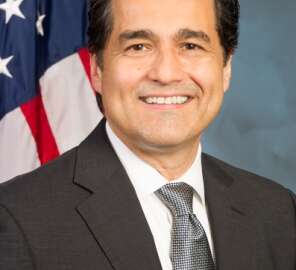
HUD’s lack of progress with major IT contract vexes industry, lawmakers alike
The Department of Housing and Urban Development has been sitting on bids from three vendors for a $40 million systems integration contract for more than nine mo...
It’s been more than a year since the Department of Housing and Urban Development released the last, and what may be the most significant, contract for its IT modernization effort called the HUD Enterprise Architecture Transformation (HEAT).
The systems integration contract, which some estimate could be worth $40 million to $50 million — a major contract for a small agency like HUD — came out in February under the National Institute of Health’s CIO-SP3 governmentwide acquisition contract. Hewlett-Packard Services submitted a pre-award protest in September after initial discussions. HUD took corrective action and then the agency went radio silent. The program started almost 18 months ago when HUD issued the draft RFP in December 2015.
Under the solicitation, HUD is looking for services such as end-user support, disaster recovery integration and understanding how systems are integrated more broadly.
Vendors involved in the bidding for the contract have heard very little from the agency except for three requests for price extensions.
“The price extensions mean they keep expecting to award and then don’t award the contract,” said one vendor source, who requested anonymity in order to talk about an active procurement. “They have not communicated formally or informally about why the award is delayed. We’ve heard that they believe they have weak evaluation criteria and didn’t do a good job in setting up evaluation criteria so now they fear a protest after the award.”
The delays have attracted the attention of three lawmakers.
Sens. Bill Cassidy (R-La.) and Jeff Kennedy (R-La.) and Rep. Mike Johnson (R-La.) wrote a letter to HUD Secretary Ben Carson asking for him to help get the process going.
“This unnecessary delay results in significant opportunity cost and it stalls the advancement of HUD’s objectives through mission-enabling technologies that will provide greater security and more capability, in a more cost efficient manner,” the lawmakers wrote on March 8. “It is our understanding that HUD has exhausted all competitive avenues to extend the current contractors while the new HEAT procurement is adjudicated. Incumbents are in year 12 of a 10-year contract. Delay means HUD continues to use outdated systems and wastes valuable time, let alone taxpayer dollars. We urge the department to ensure the HEAT contract is awarded without delay.”
A HUD spokeswoman said the agency didn’t have a comment about the letter or status of the systems integration contract under HEAT.
The incumbent is Leidos, which bought Lockheed Martin’s IT services unit, and is bidding on the deal, as are HP Services and CSRA, according to sources.
HUD gave Leidos a two-year sole source extension in 2014 that is worth $148 million to continue to support the end-user technologies under the old infrastructure contract called HITS. Lockheed and HP Services initially won HITS in 2005 under a $800 million deal. So any delay benefits Leidos and likely causes HUD to spend more money than it needs to.
In the systems integration solicitation, the agency expected a six-month transition from the incumbent to a new contractor, if necessary. The current extension ends July 31, meaning HUD may have to extend the Leidos contract again. HUD requested $60 million for the transition to HEAT in fiscal 2016, but it’s unclear if Congress funded that request and what HUD asked for in 2017.
HUD started the HEAT program in 2014 after its initial try to move off the HITS contract, called HUDNet, failed.
A former government official, knowledgeable about the HEAT program, said despite this last contract not being in place, the agency is experiencing a technology transformation, meaning the lawmakers aren’t entirely accurate about the state of HUD’s systems.
“HEAT is a strategic effort across the entire IT environment to implement transformational architecture, that includes going to the cloud, building enterprise IT solutions, taking advantage of shared services and consolidating data centers,” said the former official. “HUD created a fully redundant disaster recovery site and developed a digital innovation or services capability. HEAT has created the IT breakthrough HUD needed and is the critical effort or strategy to reinvent how IT is done at HUD.”
The official added the systems integration contract is one of about 10 contracts under HEAT and accounts for about 20 percent of the total transformative capabilities.
“HUD has turned its ability to consume and build technology when it’s needed,” the former official said. “From a HEAT perspective, the delay really has had no impact on the program. Not having that contract in place didn’t slow anything down, but from a resource perspective the technology team had to work on the procurement instead of doing their usual jobs.”
This HUD procurement is an example of why vendors, lawmakers and government officials are frustrated with the federal acquisition process. HUD has so much time and resources invested in this final contract that it likely feels it can’t start over, but it also knows any award will be protested. So it’s easiest to keep on keeping on with Leidos.
The letter from Cassidy, Kennedy and Johnson also brings us to an interesting aside. Most of the time lawmakers do not get involved in specific procurements. Sure, they write letters and ask for GAO reviews of processes, but rarely do you see a letter about a specific procurement. And when congressmen and senators do get involved in specific contracts, it’s usually for programs worth billions. Why are they writing to HUD? Well, they are pushing the Integrated Technology Center in Bossier, Louisiana, which happens to be run by CRSA — one of the three bidders on the contract.
Still, HUD’s lack of communication and unwillingness to make a decision about a major procurement is a problem. The systems integrator piece is an important one to make HEAT more effective and give HUD the contractor capabilities to bring the cloud and legacy applications together, especially at a time when the Trump administration is considering cutting the agency’s budget by 14 percent. This comes after HUD saw its IT budget drop from a high of $461 million in 2013 to $288 million in the 2017 request.
Copyright © 2024 Federal News Network. All rights reserved. This website is not intended for users located within the European Economic Area.
Jason Miller is executive editor of Federal News Network and directs news coverage on the people, policy and programs of the federal government.
Follow @jmillerWFED
Related Stories





